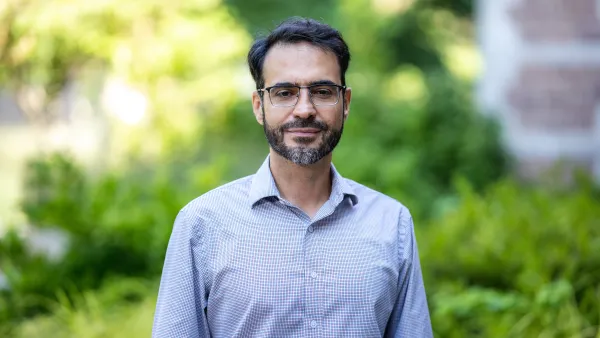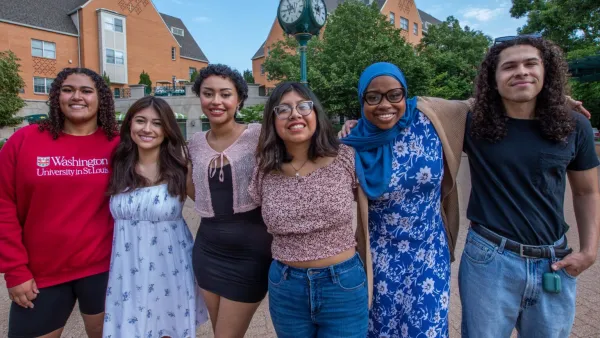Dr. Guillermo Rosas, Professor of Political Science
Associate Director of the Weidenbaum Center on the Economy, Government, & Public Policy
Where did you grow up?
I grew up in Mexico, mostly in Mexico City but with two brief 2-year periods in Monterrey and León during my childhood.
Where did you complete your undergraduate degree?
I studied at El Colegio de México, a very small public higher-ed institution founded by exiles of the Spanish Civil War.
Where did you receive your Ph.D. from?
Duke University
When did you come to WashU?
I arrived at Washington University in 2003, but only became a member of the Political Science Department in 2004.
What is your concentration?
Comparative Politics
Why did you pursue Political Science?
I studied International Relations as an undergrad (in Mexico, International Relations programs are not taught within Political Science departments) thinking that I would follow a career in diplomacy. At some point during my undergraduate career, I realized that I was more interested in trying to understand why governments pursued wildly different solutions to common problems than in representing governments in international fora. I found out about the field of comparative political economy, and was hooked by the notion that institutional and structural rather than cultural differences could explain cross-national variation in governmental policies.
What research you are most proud of?
I am very proud of my work on modeling abstentions in legislative voting. It forced me to think about the conditions under which we should worry about missing data and thus to take a deep dive into very technical work that I was not particularly well prepared to understand. I probably learned more statistical theory writing that specific paper than in all of my previous training!
What is your favorite class to teach and why?
I enjoy teaching Introduction to Comparative Politics, because it gives me an opportunity to explain why a scientific approach to the study of politics makes sense, and how we can use the tools of scientific inquiry to arrive at solid inferences while remaining appropriately circumspect about which phenomena, we understand and which require further exploration.
What is the most challenging class you have taken?
Surprisingly, not a technical class, but one that would be akin to an “elements of writing style” class. Part of the difficulty must have been that it was a freshman class, just upon starting college, but the main shock was realizing that my writing, which I considered effective and forceful, was in fact confusing and inelegant. The professor spent countless hours marking our short essays, which would come back to us covered in red marks and with very low grades. I credit her for helping me develop a more concise and direct writing style, and for helping me grow a thick skin!
What is your favorite spot on campus?
The Bears’ Den, which brings back very happy memories of living in the South-40 with our then much-younger kids.
Favorite travel destination and why?
Any place with a tropical beach; no frills, no luxurious accommodations, just sand and water.
What is the last book you read for pleasure?
I’m about to finish The Dutch House, a novel by Ann Patchett.



